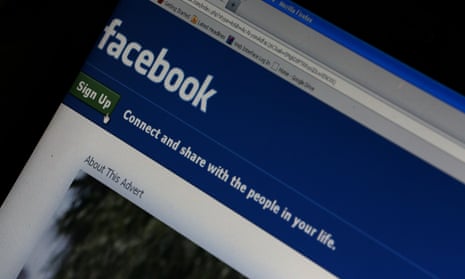Newspapers, magazines and other publishers are “feeding on the scraps” of Facebook’s multibillion-dollar ad business despite playing a central role in keeping the social network’s users happy, according to the boss of Bloomberg Media.
Justin Smith, chief executive of the financial information company’s publishing arm, told the Guardian that even though Facebook was sending traffic to publisher websites, it was making far more from ads in its news feed which was filled with publisher content.
“They keep the $16bn to $18bn they get in the news feed, and the news feed, with personal sharing down, is effectively all of our content, it’s effectively just an aggregation of premium publishers’ content,” he said.
“While that’s all legal, based on fair use, there is a real question about how fair it is that Facebook can have $16bn to $18bn dollars, $3bn or $4bn dollars in ebitda on the back of our content.”
In results announced on Wednesday, after the Guardian spoke to Smith, Facebook reported net income of $1.51bn for the first quarter of 2016, triple what it made in same quarter of 2015, and total revenues of $5.2bn.
At the same time, publishers are struggling to generate ad revenue from their digital audiences, especially with more and more of their readers visiting from mobile devices.
Smith warned that the unequal relationship many publishers were entering into with Facebook could end badly for both parties.
He said: “It’s a little bit like they are at the grown-up table and the publishers are propping it up while being fed scraps.
“It’s a problematic situation. On its current trajectory this could not end well for the news business, and Facebook needs to think about this too, because they are reliant on each other.”
He said only a few big players will be able to successfully chase scale by working with partners like Facebook.
“There will be some that achieve such tremendous scale, like BuzzFeed, that will succeed, but that’s going to be one in a million,” he said. “The rest, I would say, look for the segments, the niches that exist within your current offering, and fragment yourself.”
While many publishers were suffering, Smith said Bloomberg was able to avoid falling into the same traps because despite generating most of its money from advertising, its audience of business people was not going to Facebook for information. The operation is also supported by a the far bigger division which sells market information terminals to the finance industry.
He said: “We stand in a really unique position because we have this unique business model, we are integrated in our core business, we add value to our core business, and we are able to invest and able to expand and build something for the long term that’s of significant high quality. That is based around fundamentally counterintuitively based around building relationships with readers.”
Bloomberg is in the midst of expanding its media operation with localised versions of Bloomberg.com. Earlier this month it launched a site aimed at the Middle East, adding to localised versions for Europe and Asia launched over the last year.










Comments (…)
Sign in or create your Guardian account to join the discussion